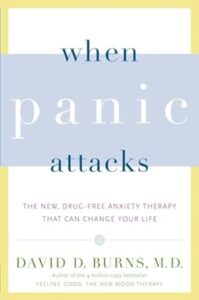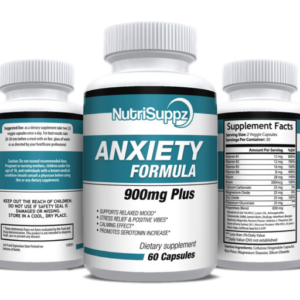30 Aug Panic Attacks Unveiled: Symptoms, Causes, and Solutions
Panic Attacks Unveiled: Symptoms, Causes, and Solutions
Panic attacks are sudden and intense episodes of fear or discomfort that can be overwhelming and frightening. They can strike unexpectedly and often leave individuals feeling out of control. At Nutrisuppz, we aim to provide a clear understanding of panic attacks and offer strategies to manage them effectively. This article will cover the nature of panic attacks, their symptoms, potential causes, and practical approaches to coping with and reducing their impact.
What is a Panic Attack?
A panic attack is a sudden surge of intense fear or discomfort that peaks within minutes. During a panic attack, an individual may experience a range of physical and emotional symptoms that can be alarming. These episodes are often characterized by a sense of impending doom or a fear of losing control. Panic attacks can occur without warning and may lead to significant distress and anxiety about experiencing future attacks.
Understanding panic attacks is crucial for managing them effectively. They are not necessarily indicative of a serious underlying health condition, but they can be distressing and interfere with daily life.
Common Symptoms of Panic Attacks
Panic attacks can manifest with a variety of symptoms, which can be both physical and psychological. Common symptoms include:
- Rapid heartbeat or palpitations
- Sweating
- Trembling or shaking
- Shortness of breath or a feeling of being smothered
- Chest pain or discomfort
- Nausea or abdominal distress
- Dizziness or lightheadedness
- Chills or hot flashes
- Numbness or tingling sensations
- Feelings of unreality or detachment from oneself
These symptoms can be so intense that individuals may fear they are having a heart attack or another serious medical emergency. However, while panic attacks can be highly distressing, they are generally not life-threatening.
Causes of Panic Attacks
The exact cause of panic attacks is not fully understood, but several factors may contribute to their onset. Genetic predisposition plays a role, as individuals with a family history of anxiety disorders may be more susceptible. Biological factors, such as imbalances in brain chemicals and hormones, are also believed to be involved.
Environmental stressors, including significant life changes, trauma, or chronic stress, can trigger or exacerbate panic attacks. Psychological factors, such as a tendency toward heightened anxiety or negative thought patterns, can also contribute. Additionally, certain medical conditions and substances, such as caffeine or drugs, may trigger or worsen panic attacks.
Managing and Reducing Panic Attacks
Managing panic attacks involves a combination of strategies to reduce their frequency and severity. One effective approach is to engage in regular physical exercise, which can help reduce overall anxiety and improve mood. Activities such as walking, jogging, or yoga can be beneficial.
Practicing relaxation techniques, such as deep breathing exercises, progressive muscle relaxation, or mindfulness meditation, can help calm the mind and body during a panic attack. These techniques can also be effective in reducing overall anxiety levels.
Maintaining a healthy lifestyle is crucial for managing panic attacks. A balanced diet, adequate sleep, and limiting the consumption of stimulants like caffeine and nicotine can positively impact mental well-being.
Additionally, cognitive-behavioral therapy (CBT) has been shown to be effective in treating panic attacks. CBT helps individuals identify and challenge negative thought patterns and develop coping strategies. In some cases, medication may be prescribed by a healthcare provider to help manage symptoms.
Seeking Professional Help
If you experience frequent or severe panic attacks, it is important to seek professional help. A mental health professional can provide a thorough evaluation and develop a tailored treatment plan. Therapy, counseling, and medication may be part of an effective treatment strategy.
If you have thoughts of self-harm or severe anxiety, seek immediate assistance from a healthcare provider or crisis counselor. Support is available, and treatment can help improve quality of life and reduce the impact of panic attacks.
Panic Attacks Unveiled: Symptoms, Causes, and Solutions
Conclusion
Understanding and managing panic attacks is essential for improving overall mental health and well-being. By recognizing the symptoms, exploring potential causes, and implementing effective management strategies, individuals can take proactive steps toward reducing the impact of panic attacks. At Nutrisuppz, we encourage a holistic approach that includes lifestyle changes, relaxation techniques, and professional support to foster a healthier and more balanced life.




No Comments